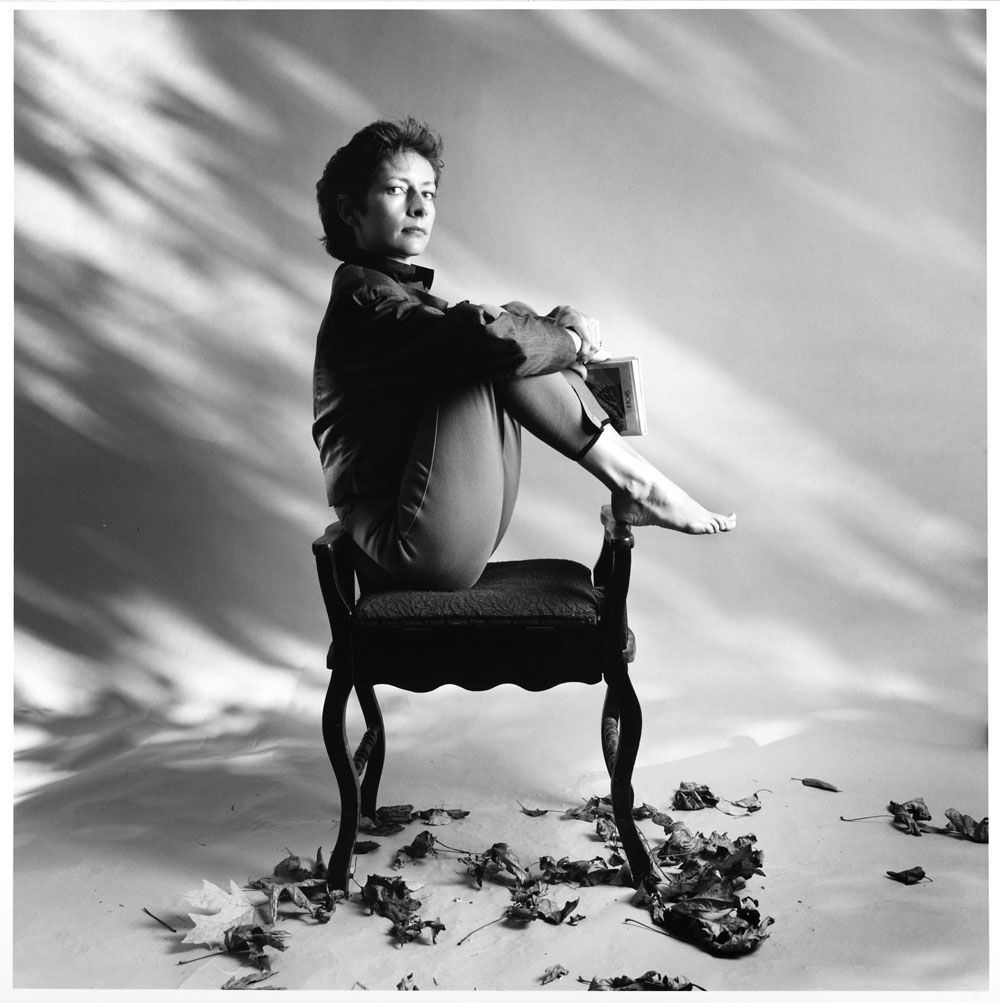a gold, late-model Grand Marquis, remember those?
The driver's keys, unclutched, on the seat
beside him, a little of his youth
still hesitant on his face,
his skin so blue —
the late afternoon fading as well in the early-summer's
heat, the car's hazard lights
blinking on-and-off, on-
and-off, relaying a last-minute
presence of mind —
and then doubt —
courage, and then a failing.
Hard to know
whether he was coming or going — in a real flap
or taking his own sweet time —
the back seat crammed with a vintage red
vacuum, broken lamp, and barrage of cardboard boxes
holding God-knows-what,
the sum total of a kind of living.
A passerby laughed with me about that.
We took turns leaning into the car's open windows
and shouting into the man's face.
That can sometimes be a life-saver;
even wrong-sounding words
better than a roaring white street
of silence.
For some reason I thought
to recite a few poems
that might awaken a man;
one by Carver about the last years
being "pure gravy,"
and a few words from John Donne
on the subject of death being not especially "proud" . . .
while my cohort, curious as I was
to see some trick of transparency — a lifting up,
or out of, as easy to believe
as smoke from a winter chimney —
kept repeating, "Can you hear me? Are you
diabetic?" and once, just for a joke,
"Hey buddy, here come the police!"
But there were no sirens,
although we'd called for response;
the air hung heavily in the street, and the man
didn't even twitch, not once,
while we yodelled and felt ill-at-ease;
a third bystander soon
sprinting to the nearby Big-B Saloon
where the girls would start dancing, later,
to spread the news, some sorry sod
blacked-out — maybe not even breathing —
Another quarter-hour tripped by
like soft, sullen eternity,
an ambulance finally gliding into view —
it seemed cruel providence
to remember the milk I'd bought, spoiled in the heat.
"You did the right thing,"
the paramedic said, pulling on his baby-blue latex gloves;
although I'd been afraid
to touch a man with writhing-snake tattoos,
his mouth gaping —
had offered only badly-canted verse
as resuscitation.
"He's a known drug-user; has OD'd before,"
the medic said, without blame,
as if despair were an accepted fact
like the earth being round
and wobbling slightly on its axis.
We were standing in front of the Bellevue,
a roughneck hotel survived
from boom-and-bust days in a once-shake-mill town —
cars slowing, faces craned
to catch sight of someone
unrecognized, and in real trouble —
that's as good as it gets; a thrilling
of blood, their own lives
remarkably unscathed —
Maybe they thought I knew
the collapsed man, had chosen
to love him, the way we do — helplessly,
and half-hearted —
or cheapened the story
once they got home, some drifter's
girlfriend or sister, bawling her eyes out
on the main drag, they saw the whole thing.
I hate that, people blowing things
out of proportion. It shows us up
to be only passing strangers, nothing more.
Believe me, it was this simple.
I saw the gold car, the blued skin
of the man inside,
and how he wanted
to prepare for beauty,
give it his best shot,
get somewhere without any hitches, for once —
without that shimmering hook, or hoop
that always snared him —
and such a quiet approach
on old, bald tires.

I keep coming back to admire this work. I am really envious of this skilled poet. A wonderful poem.
ReplyDelete